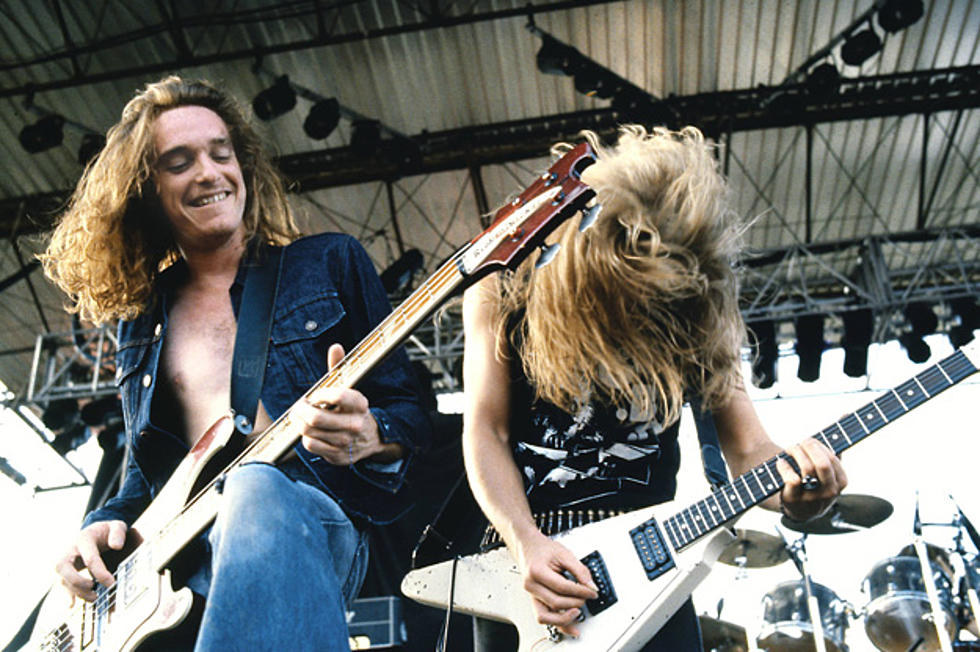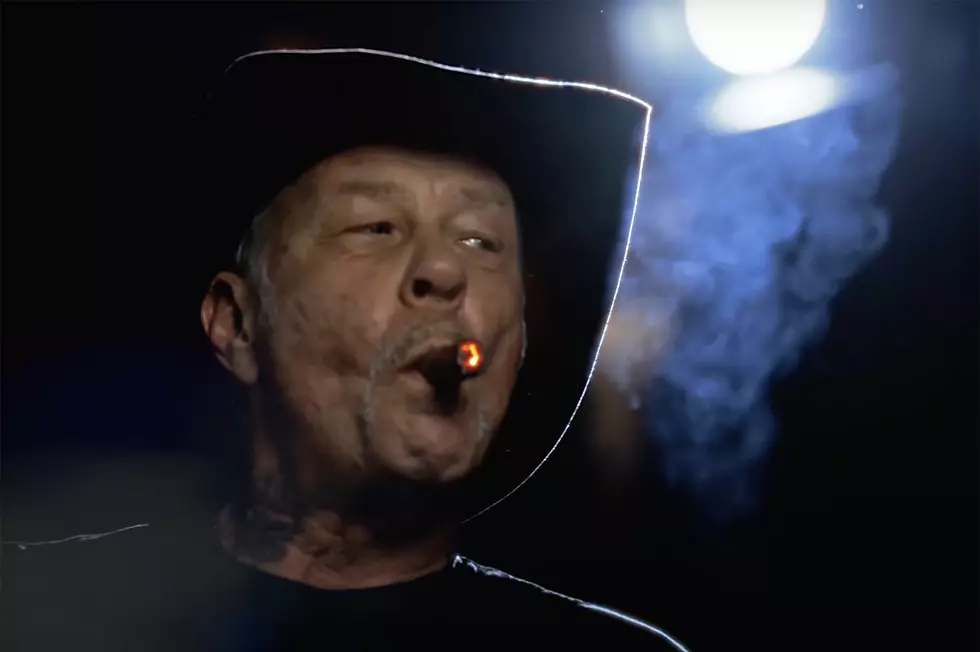
Top 10 Cliff Burton Metallica Songs
Cliff Burton left a void after he died in a tragic tour bus accident on Sept. 27, 1986 that the heavy metal community has never really managed to fill – much less Metallica.
Before Burton's emergence just a few years earlier as the genre's next revolutionary, the role of bass had already been redefined both by Black Sabbath's Geezer Butler and Iron Maiden's Steve Harris. But since Burton's departure, no single figure has had a similarly broad impact – not even underground giants such as Steve DiGiorgio, Roger Patterson or Joe Lester.
Need proof? Check out this list of the Top 10 Cliff Burton Metallica Songs.
- 10
"To Live Is to Die"
From: ‘… And Justice for All’ (1988)We begin our survey of the Top 10 Cliff Burton Metallica Songs with the 10-minute funeral march from … And Justice for All, a song Cliff sadly didn’t live to play on, but which was built from a series of riffs and melodies he had demoed before his death. As such, its stately, epic majesty and somber mood will serve as sonic pallbearers for what lies ahead.
- 9
"The Thing That Should Not Be"
From: ‘Master of Puppets’ (1986)Master of Puppets sounded like the heaviest album ever made at the time of its release. Yet for all those tunes fueled by violent thrashing, arguably none sounded as heavy as this track. An uncharacteristically deliberate, doom-laden affair thrumming with low-end guitars and bass, "The Thing That Should Not Be" was capped with lyrics inspired by Burton’s love of H.P. Lovecraft.
- 8
"Seek & Destroy"
From: ‘Kill ‘Em All’ (1983)With its slower pace and repetitive melodic riff, "Seek & Destroy" was probably the most accessible composition on this thrash-tastic LP. Let’s be honest, however, it was also a little dull. Still, "Seek & Destroy" would have been a lot worse without Burton’s deft fingering and overdriven wah-wah fills keeping boredom at bay. Pay close attention after James Hetfield first states the chorus.
- 7
"Damage, Inc."
From: ‘Master of Puppets’ (1986)This popular song’s intro section is constructed entirely from Burton bass parts, stacked into a harmonic sequence that was inspired by Johann Sebastian Bach. Burton uses his volume controls to create recurring sonic swells, which lift and dip like ocean waves before crashing upon the shores of thrashdom. Mayhem ensues, but Burton never loses his inimitably precise fingering technique, even at very high velocities – and without a pick.
- 6
"The Four Horsemen"
From: ‘Kill ‘Em All’ (1983)The remarkable "The Four Horsemen" remains a colossal thrashing tour de force, especially coming from a group of kids who were barely out of their teens and still applying zit cream. As the old man of the group (all of 21!), Burton’s knowledge of musical theory proved crucial in transforming Dave Mustaine’s rough and ready "The Mechanix" into this seven-minute behemoth. Burton also stole the show during this track's slower mid-section (beginning at the 3:30 mark) with a cleverly ascending bass figure that sounds oddly reminiscent of Lynyrd Skynyrd’s "Sweet Home Alabama."
- 5
"Creeping Death"
From: ‘Ride the Lightning’ (1984)Halfway through our list of Top 10 Cliff Burton Metallica Songs lies "Creeping Death" – pound for pound, maybe the band’s single greatest musical creation, and another excellent example of Cliff Burton’s importance to Metallica. He coined the title for Hetfield’s Old Testament horror show and his timely counterpoints consistently offer different shadings behind the six-string riffage. To cap it all off, that three-note bass fill at the 30-second mark has often been called the greatest “here comes the pain” moment in heavy-metal history.
- 4
"For Whom the Bell Tolls"
From: ‘Ride the Lightning’ (1984)Even all these years later, many first-time listeners find it hard to believe that the head-ripping melody that introduces Metallica’s first non-thrash metal song wasn't performed on guitar. Instead, that's Cliff Burton’s trusty four-string. Turns out, Burton had been playing some variety of this sequence of bluesy string bends with loads of amp distortion since his days in the pre-Metallica band Trauma – and maybe even high school, as cafeteria footage later suggested. (Faith No More’s Jim Martin was featured on guitar back then.)
- 3
"Orion"
From: ‘Master of Puppets’ (1986)Burton’s baby all the way, "Orion" was the requisite instrumental recorded for the Master of Puppets album, and it opens with a series of backwards-played bass parts, similar to the intro to "Damage, Inc." Then, almost exactly four minutes in, "Orion" settles into a gentle melodic pattern that has since become synonymous with posthumous tributes to Burton. Circa 6:35, Burton takes his last recorded solo with Metallica, firing off a dexterous lead that eventually meshes perfectly with Kirk Hammett’s guitar.
- 2
"The Call of Ktulu"
From: ‘Ride the Lightning’ (1984)One of the great metallic tragedies of the compact-disc era was the way Cliff Burton’s bass got buried in the transition to digital, thus requiring one to hear vinyl mixes of "The Call of Ktulu" in order to truly grasp one of Burton’s greatest lifetime achievements. (The lyrics also originated in his Lovecraft-ian reading materials.) Listen closely as Burton slides into action at the one-minute mark. He then begins to wail underneath Hetfield and Hammett’s riffs, flying and flailing up and down the neck while periodically unleashing shockwaves of distortion with a hyperactive wah-wah pedal.
- 1
"(Anesthesia) Pulling Teeth"
From: ‘Kill ‘Em All’ (1983)“Bass solo, take one,” Burton mutters ahead of this paradigm-shifting moment, forewarning listeners that their minds were about to be blown. The inevitable No. 1 choice in our list of the Top 10 Cliff Burton Metallica Songs took an instrument most fans hardly knew they were hearing and shoved it down the heavy-metal world’s collective throat. "(Anesthesia) Pulling Teeth" was an almost unprecedented display of daring and chops, showcasing Burton’s incredible technique, significant chutzpah and eclectic musical tastes. Check out those bluesy bends, and classical scales. There’s simply no better example of his crucial contributions to Metallica’s career.
More From Ultimate Classic Rock









